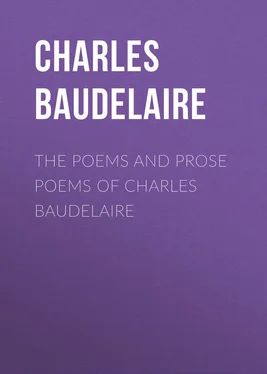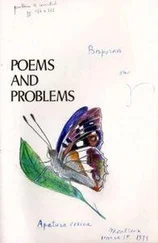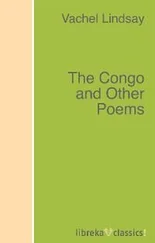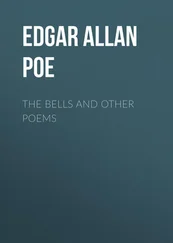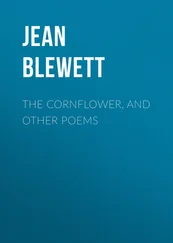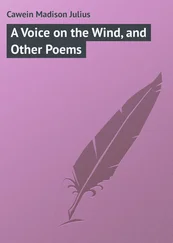Charles Baudelaire - The Poems and Prose Poems of Charles Baudelaire
Здесь есть возможность читать онлайн «Charles Baudelaire - The Poems and Prose Poems of Charles Baudelaire» — ознакомительный отрывок электронной книги совершенно бесплатно, а после прочтения отрывка купить полную версию. В некоторых случаях можно слушать аудио, скачать через торрент в формате fb2 и присутствует краткое содержание. Жанр: foreign_antique, foreign_prose, foreign_poetry, на английском языке. Описание произведения, (предисловие) а так же отзывы посетителей доступны на портале библиотеки ЛибКат.
- Название:The Poems and Prose Poems of Charles Baudelaire
- Автор:
- Жанр:
- Год:неизвестен
- ISBN:нет данных
- Рейтинг книги:4 / 5. Голосов: 1
-
Избранное:Добавить в избранное
- Отзывы:
-
Ваша оценка:
- 80
- 1
- 2
- 3
- 4
- 5
The Poems and Prose Poems of Charles Baudelaire: краткое содержание, описание и аннотация
Предлагаем к чтению аннотацию, описание, краткое содержание или предисловие (зависит от того, что написал сам автор книги «The Poems and Prose Poems of Charles Baudelaire»). Если вы не нашли необходимую информацию о книге — напишите в комментариях, мы постараемся отыскать её.
The Poems and Prose Poems of Charles Baudelaire — читать онлайн ознакомительный отрывок
Ниже представлен текст книги, разбитый по страницам. Система сохранения места последней прочитанной страницы, позволяет с удобством читать онлайн бесплатно книгу «The Poems and Prose Poems of Charles Baudelaire», без необходимости каждый раз заново искать на чём Вы остановились. Поставьте закладку, и сможете в любой момент перейти на страницу, на которой закончили чтение.
Интервал:
Закладка:
Another misconception, a critical one, is the case of Poe and Baudelaire. The young Frenchman first became infatuated with Poe's writings in 1846 or 1847 – he gave these two dates, though several stories of Poe had been translated into French as early as 1841 or 1842; L'Orang-Outang was the first, which we know as The Murders in the Rue Morgue; Madame Meunier also adapted several Poe stories for the reviews. Baudelaire's labours as a translator lasted over ten years. That he assimilated Poe, that he idolized Poe, is a commonplace of literary gossip. But that Poe had overwhelming influence in the formation of his poetic genius is not the truth. Yet we find such an acute critic as the late Edmund Clarence Stedman writing, "Poe's chief influence upon Baudelaire's own production relates to poetry." It is precisely the reverse. Poe's influence affected Baudelaire's prose, notably in the disjointed confessions, Mon cœur mis à nu, which vaguely recall the American writer's Marginalia. The bulk in the poetry in Les Fleurs du Mal was written before Baudelaire had read Poe, though not published in book form until 1857. But in 1855 some of the poems saw the light in the Revue des deux Mondes, while many of them had been put forth a decade or fifteen years before as fugitive verse in various magazines. Stedman was not the first to make this mistake. In Bayard Taylor's The Echo Club we find on page 24 this criticism: "There was a congenital twist about Poe … Baudelaire and Swinburne after him have been trying to surpass him by increasing the dose; but his muse is the natural Pythia inheriting her convulsions, while they eat all sorts of insane roots to produce theirs." This must have been written about 1872, and after reading it one would fancy that Poe and Baudelaire were rhapsodic wrigglers on the poetic tripod, whereas their poetry is often reserved, even glacial. Baudelaire, like Poe, sometimes "built his nests with the birds of Night," and that was enough to condemn the work of both men by critics of the didactic school.
Once, when Baudelaire heard that an American man of letters(?) was in Paris, he secured an introduction and called on him. Eagerly inquiring after Poe, he learned that he was not considered a genteel person in America, Baudelaire withdrew, muttering maledictions. Enthusiastic poet! Charming literary person! Yet the American, whoever he was, represented public opinion at the time. To-day criticisms of Poe are vitiated by the desire to make him an angel. It is to be doubted whether without his barren environment and hard fortunes we should have had Poe at all. He had to dig down deep into the pit of his personality to reach the central core of his music. But every ardent young soul entering "literature" begins by a vindication of Poe's character. Poe was a man, and he is now a classic. He was a half-charlatan as was Baudelaire. In both the sublime and the sickly were never far asunder. The pair loved to mystify, to play pranks on their contemporaries. Both were implacable pessimists. Both were educated in affluence, and both had to face unprepared the hardships of life. The hastiest comparison of their poetic work will show that their only common ideal was the worship of an exotic beauty. Their artistic methods of expression were totally dissimilar. Baudelaire, like Poe, had a harp-like temperament which vibrated in the presence of strange subjects. Above all, he was obsessed by sex. Women, as angel of destruction, is the keynote of his poems. Poe was almost sexless. His aerial creatures never footed the dusty highways of the world. His lovely lines, "Helen, thy beauty is to me," could never have been written by Baudelaire; while Poe would never have pardoned the "fulgurant" grandeur, the Beethoven-like harmonies, the Dantesque horrors of that "deep wide music of lost souls" in "Femmes Damnées":
"Descendes, descendes, lamentable victimes."
Or this, which might serve as a text for one of John Martin's vast sinister mezzotints:
J'ai vu parfois au fond d'un théâtre banal
Qu'enflammait l'orchestre sonore,
Une fée allumer dans un ciel infernal
Une miraculeuse aurore;
J'ai vu parfois au fond d'un théâtre banal
Un être, qui n'était que lumière, or et gaze,
Terrasser rénorme Satan;
Mais mon cœur que jamais ne visite l'extase,
Est un théâtre où l'on attend
Toujours, toujours en vain l'Etre aux ailes de gaze.
George Saintsbury thus sums up the differences between Poe and Baudelaire: "Both authors – Poe and De Quincey – fell short of Baudelaire himself as regards depth and fulness of passion, but both have a superficial likeness to him in eccentricity of temperameut and affection for a certain peculiar mixture of grotesque and horror." Poe is without passion, except a passion for the macabre; what Huysmans calls "The October of the sensations"; whereas, there is a gulf of despair and terror and humanity in Baudelaire, which shakes your nerves, yet stimulates the imagination. However, profounder as a poet, he was no match for Poe in what might be termed intellectual prestidigitation. The mathematical Poe, the Poe of the ingenious detective tales, tales extraordinary, the Poe of the swift flights into the cosmic blue, the Poe the prophet and mystic – in these the American was more versatile than his French translator. That Baudelaire said, "Evil be thou my good," is doubtless true. He proved all things and found them vanity. He is the poet of original sin, a worshipper of Satan for the sake of paradox; his Litanies to Satan ring childish to us – in his heart he was a believer. His was "an infinite reverse aspiration," and mixed up with his pose was a disgust for vice, for life itself. He was the last of the Romanticists; Sainte-Beuve called him the Kamchatka of Romanticism; its remotest hyperborean peak. Romanticism is dead to-day, as dead as Naturalism; but Baudelaire is alive, and read. His glistening phosphorescent trail is over French poetry and he is the begetter of a school: – Verlaine, Villiers de l'Isle Adam, Carducci, Arthur Rimbaud, Jules Laforgue, Gabriel D'Annunzio, Aubrey Beardsley, Verhaeren, and many of the youthful crew. He affected Swinburne, and in Huysmans, who was not a poet, his splenetic spirit lives. Baudelaire's motto might be the obverse of Browning's lines: "The Devil is in heaven. All's wrong with the world."
When Goethe said of Hugo and the Romanticists that they came from Chateaubriand, he should have substituted the name of Rousseau – "Romanticism, it is Rousseau," exclaims Pierre Lasserre. But there is more of Byron and Petrus Borel – a forgotten half-mad poet – in Baudelaire; though, for a brief period, in 1848, he became a Rousseau reactionary, sported the workingman's blouse, cut his hair, shouldered a musket, went to the barricades, wrote inflammatory editorials calling the proletarian "Brother!" (oh, Baudelaire!) and, as the Goncourts recorded in their diary, had the head of a maniac. How seriously we may take this swing of the pendulum is to be noted in a speech of the poet's at the time of the Revolution: "Come," he said, "let us go shoot General Aupick!" It was his stepfather that he thought of, not the eternal principles of Liberty. This may be a false anecdote; many such were foisted upon Baudelaire. For example, his exclamations at cafés or in public places, such as: "Have you ever eaten a baby? I find it pleasing to the palate!" or, "The night I killed my father!" Naturally, people stared and Baudelaire was happy – he had startled a bourgeois. The cannibalistic idea he may have borrowed from Swift's amusing pamphlet, for this French poet knew English literature.
Gautier compares the poems to a certain tale of Hawthorne's in which there is a garden of poisoned flowers. But Hawthorne worked in his laboratory of evil wearing mask and gloves; he never descended into the mud and sin of the street. Baudelaire ruined his health, smudged his soul, yet remained withal, as Anatole France says, "a divine poet." How childish, yet how touching is his resolution – he wrote in his diary of prayer's dynamic force – when he was penniless, in debt, threatened with imprisonment, sick, nauseated with sin: "To make every morning my prayer to God, the reservoir of all force, and all justice; to my father, to Mariette, and to Poe as intercessors." (Evidently, Maurice Barrès encountered here his theory of Intercessors.) Baudelaire loved the memory of his father as much as Stendhal hated his own. He became reconciled with his mother after the death of General Aupick, in 1857. He felt in 1862 that his own intellectual eclipse was approaching, for he wrote: "I have cultivated my hysteria with joy and terror. To-day imbecility's wing fanned me as it passed." The sense of the vertiginous gulf was abiding with him; read his poem, "Pascal avait son gouffre."
Читать дальшеИнтервал:
Закладка:
Похожие книги на «The Poems and Prose Poems of Charles Baudelaire»
Представляем Вашему вниманию похожие книги на «The Poems and Prose Poems of Charles Baudelaire» списком для выбора. Мы отобрали схожую по названию и смыслу литературу в надежде предоставить читателям больше вариантов отыскать новые, интересные, ещё непрочитанные произведения.
Обсуждение, отзывы о книге «The Poems and Prose Poems of Charles Baudelaire» и просто собственные мнения читателей. Оставьте ваши комментарии, напишите, что Вы думаете о произведении, его смысле или главных героях. Укажите что конкретно понравилось, а что нет, и почему Вы так считаете.
